
The historical dictionaries present essential information on a broad range of subjects, including American and world history, art, business, cities, countries, cultures, customs, film, global conflicts, international relations, literature, music, philosophy, religion, sports, and theater. Written by experts, all contain highly informative introductory essays of the topic and detailed chronologies that, in some cases, cover vast historical time periods but still manage to heavily feature more recent events.
Brief AZ entries describe the main people, events, politics, social issues, institutions, and policies that make the topic unique, and entries are cross-referenced for ease of browsing. Extensive bibliographies are divided into several general subject areas, providing excellent access points for students, researchers, and anyone wanting to know more. Additionally, maps, photographs, and appendixes of supplemental information aid high school and college students doing term papers or introductory research projects. In short, the historical dictionaries are the perfect starting point for anyone looking to research in these fields.
Historical Dictionaries of Ancient Civilizations and Historical Eras
Jon Woronoff, Series Editor
Ancient Mesoamerica , by Joel W. Palka, 2000.
Pre-Colonial Africa , by Robert O. Collins, 2001.
Medieval Russia , by Lawrence N. Langer, 2001.
Napoleonic Era , by George F. Nafziger, 2001.
Ottoman Empire , by Selcuk Aksin Somel, 2003.
Mongol World Empire , by Paul D. Buell, 2003.
Ancient and Medieval Nubia , by Richard A. Lobban Jr., 2003.
The Vikings , by Katherine Holman, 2003.
The Renaissance , by Charles G. Nauert, 2004.
Ancient Israel , by Niels Peter Lemche, 2004.
The Hittites , by Charles Burney, 2004.
Early North America , by Cameron B. Wesson, 2005.
The Enlightenment , by Harvey Chisick, 2005.
Cultural Revolution , by Guo Jian, Yongyi Song, and Yuan Zhou, 2006.
Ancient Southeast Asia , by John N. Miksic, 2007.
Medieval China , by Victor Cunrui Xiong, 2009.
Medieval India , by Iqtidar Alam Khan, 2008.
Ancient South America , by Martin Giesso, 2008.
Ancient Egypt, Second Edition , by Morris L. Bierbrier, 2008.
India , by Kumkum Roy, 2009.
The Etruscans , by Simon K. F. Stoddart, 2009.
Modern China (18001949) , by James Z. Gao, 2009.
Mesopotamia, Second Edition , by Gwendolyn Leick, 2010.
Byzantium, Second Edition , by John H. Rosser, 2012.
Historical Dictionary of Byzantium
Second Edition
John H. Rosser

The Scarecrow Press, Inc.
Lanham Toronto Plymouth, UK
2012
Published by Scarecrow Press, Inc.
A wholly owned subsidiary of The Rowman & Littlefield Publishing Group, Inc.
4501 Forbes Boulevard, Suite 200, Lanham, Maryland 20706
http://www.scarecrowpress.com
Estover Road, Plymouth PL6 7PY, United Kingdom
Copyright 2012 by John H. Rosser
All rights reserved . No part of this book may be reproduced in any form or by any electronic or mechanical means, including information storage and retrieval systems, without written permission from the publisher, except by a reviewer who may quote passages in a review.
British Library Cataloguing in Publication Information Available
Library of Congress Cataloging-in-Publication Data
Rosser, John H. (John Hutchins), 1942
Historical dictionary of Byzantium / John H. Rosser. 2nd ed.
p. cm. (Historical dictionaries of ancient civilizations and historical eras)
Includes bibliographical references.
ISBN 978-0-8108-7567-8 (cloth : alk. paper) ISBN 978-0-8108-7477-0 (ebook)
1. Byzantine EmpireHistoryDictionaries. I. Title.
DF552.R67 2012
949.5'0203dc23 2011032961
 The paper used in this publication meets the minimum requirements of American National Standard for Information SciencesPermanence of Paper for Printed Library Materials, ANSI/NISO Z39.48-1992.
The paper used in this publication meets the minimum requirements of American National Standard for Information SciencesPermanence of Paper for Printed Library Materials, ANSI/NISO Z39.48-1992.
Printed in the United States of America
To Adam, who has explored Byzantine Greece with me
The highest that we can attain to is not Knowledge, but Sympathy with Intelligence.
Thoreau, Walking
Editors Foreword
Once there were two empires. The Holy Roman Empire in the West was neither holy, nor Roman, nor an empire. Byzantium in the East was an empire, with a long succession of emperors. Its links with ancient Rome and Greece were much stronger. As the center of Orthodox Christianity, it could claim a considerable degree of holiness. In addition, it was a great center of learning and culture with exceptional achievements in art, architecture, and literature. And it held sway over vast lands and numerous peoples. Nonetheless, the West tended to look down on, and be suspicious of, its great neighbor centered in Constantinople. When Byzantium finally fell, it was partly due to its eastern enemies, but also due to the meddling and incredibly destructive assistance of supposed saviors from the West. Still, Byzantium left an enduring legacy in the Orthodox churches, and in such successor states as Russia, Greece, and Serbia.
Even today, the West, to say nothing of other cultural areas, has not really grasped the significance of Byzantium, and this book is one more attempt at filling the gap. Historical Dictionary of Byzantium does this in various ways. The first is perhaps the most telling, for the chronology covers not only centuries but more than a millennium, from the rise in 324 to the fall in 1453. This was a time of growth, glory, and gradual decline, and a big chunk of world history that deserves to be recognized. The introduction explains how the empire was structured and covers its major successes, and failures. More details can be found in the several hundred dictionary entries, including especially those on significant persons, such as emperors, popes, generals, writers, and theologians, as well as crucial events. This is embedded in broader studies of the economy, society, culture, and especially religion. Obviously, this book is an excellent starting point and, thus, serious readers should consult the substantial bibliography that directs them to both general and more specific works.
This is now the second edition of the Historical Dictionary of Byzantium , and it has been extensively expanded since the first. Both editions are written by John H. Rosser, who has been preparing for the task for some four decades. He began studying Byzantine history at Rutgers University and has been on the faculty of the Department of History, Boston College, since 1971, teaching Byzantine history to many successive classes of students. He has also been active in Byzantine archeology, including fieldwork in Greece and Cyprus. His research has resulted in numerous articles and an edited volume. Nonetheless, it was a daunting challenge to compile such a book, which summarizes many different aspects of Byzantium. The result is a work profiting from the integration of a single author and providing an introduction to the field for beginners and a source of information for the more advanced. In its own way, it clearly fills the gaps mentioned previously.
Jon WoronoffSeries Editor
Acknowledgments
A single-volume encyclopedia such as this must necessarily select and compress from a great deal of material. It can make no claim to originality other than the selection process, most important of which has been my desire to state the most salient assessments at the beginning of each entry. Such judgments I take responsibility for. However, the information itself is derived from the selected bibliography. Some works were consulted more than others; some areas of the bibliography were consulted infrequently, especially those areas having to do with civilization and culture: for this book is chiefly about important people, places, and major events. Much has been published since this book first appeared in 2001. It has been necessary to add dozens of new entries and to revise many previous entries. The additional bibliography reflects the many new studies that have appeared since 2001.

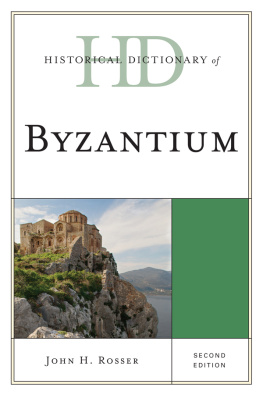
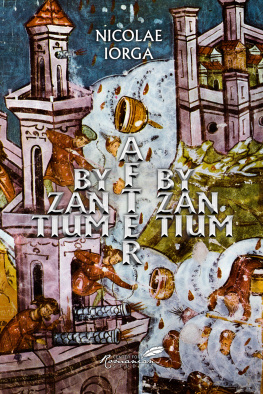

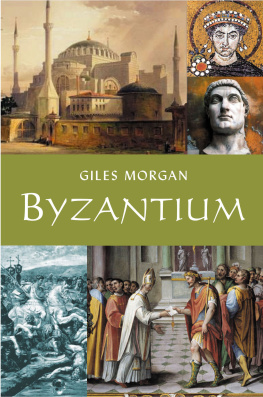
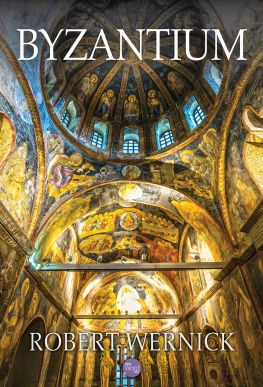
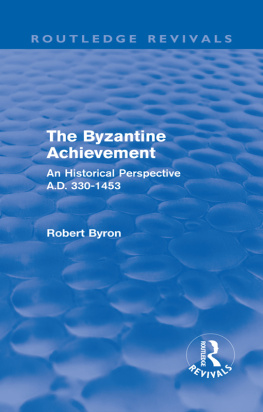
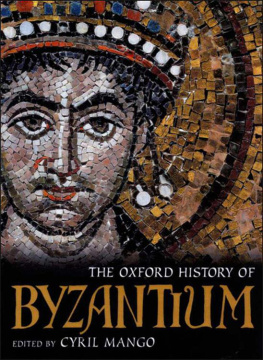


 The paper used in this publication meets the minimum requirements of American National Standard for Information SciencesPermanence of Paper for Printed Library Materials, ANSI/NISO Z39.48-1992.
The paper used in this publication meets the minimum requirements of American National Standard for Information SciencesPermanence of Paper for Printed Library Materials, ANSI/NISO Z39.48-1992.